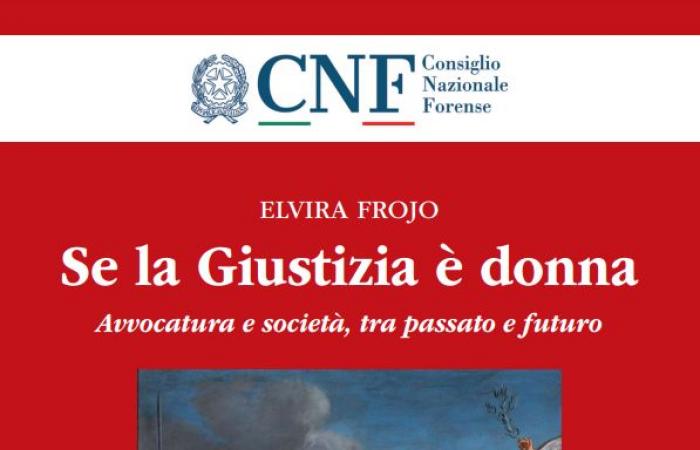A reflection on the past looking at the present to imagine different perspectives on a path that is still uncertain for women
Published:30-06-2024 21:43
Last update:30-06-2024 22:54
ROME – Thefemale empowerment of the lawyer it is the red thread of the volume “If Justice is a Woman” (pagg. 215, euro 25, ed. Wolters Kluwer) in Elvira Frojo, journalist and writer on her fifth book, former lawyer and public administration manager, written for the National Bar Council. An exciting journey, twenty years after the establishment of the first “Equal Opportunities Commission” established by the apex body of the legal profession, which is also a hymn for a new humanity. History of female lawyers reveals how much the contribution of women in law has brought about changes not only in the legal profession but also in civil society.
A reflection on the past looking at the present to imagine different perspectives on a path that is still uncertain for women. As we read in the presentation to the volume by the jurist Guido Alpa, the “book collects facts, documents, testimonies and helps to understand the reasons for the delays (political and cultural) that have marked this path, the difficult achievements and the goals still to be achieved. With passion he shows the way, which does not only concern women, it concerns all of us who want to defend the rights and dignity of people”. Lawyers “are protagonists of substantial justice, always human, which comes from the heart, offering trust for new horizons and for the rights of all”, highlights the president of the CNF Francesco Greco in the preface. AND Maria Masi, first female former president of the CNF after a hundred years, he notes in the introduction:
“It is the horizon of this book, looking at the female commitment of the lawyer to fuel the optimism of will and reason, with greater awareness of a role of Justice that expands beyond the formal data, projecting towards dynamics of dialogue and confrontation because the law is not always identified with the law and certainly is not exhausted by it”. In the background of the book, themes on the female role in society and relationships. What identity, today, for women starting from the violence of language and discrimination in the world of work up to feminicides? A trend that appears difficult to reverse. The author’s message of hope for a changing society is nourished, above all, by principles, values, sharing, for the benefit of all, starting also from the social function of the legal profession.
The news on the Dire website can be used and reproduced, provided that the source Agenzia DIRE and the address www.dire.it are expressly cited






